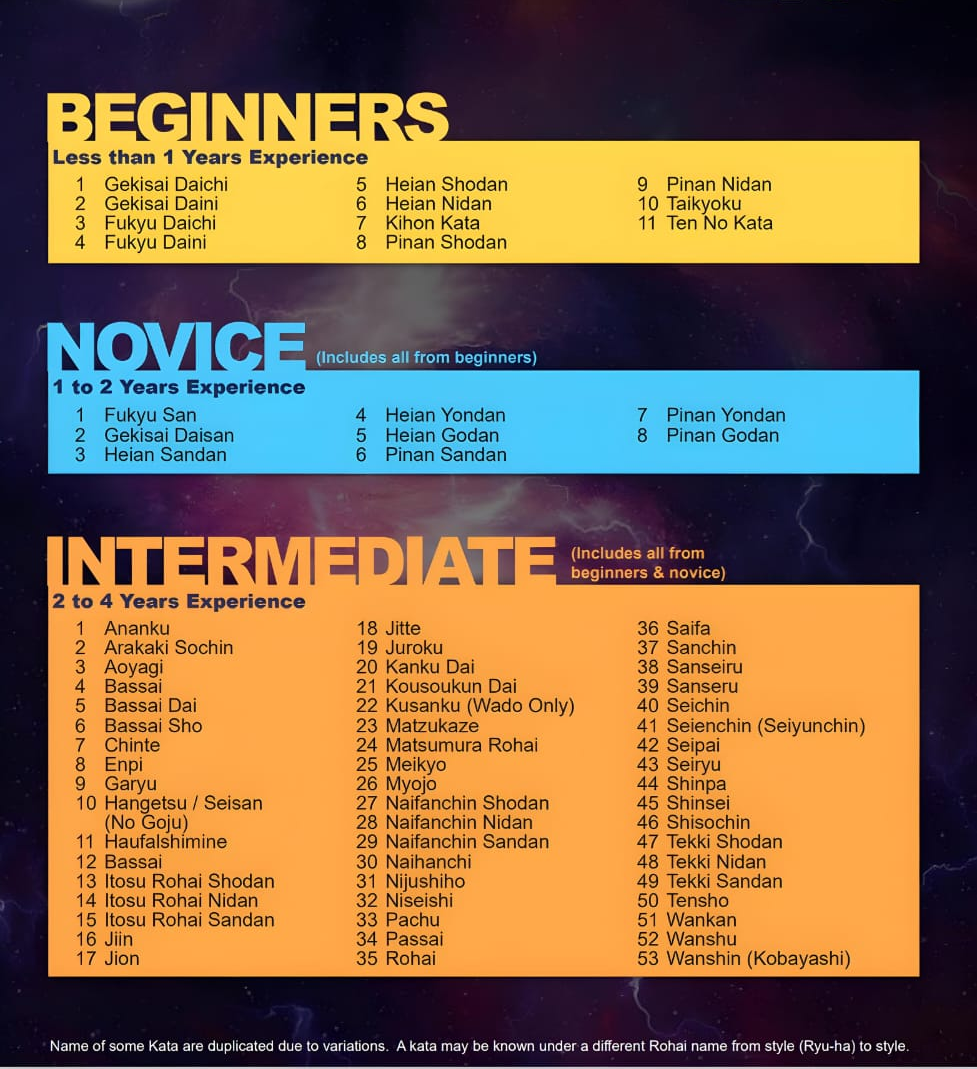🥋 TOURNAMENT RULES & REGULATIONS
2025 USA-NKF / WKF Modified Rules
📜 General Rules
-
The Tournament Director may combine or split categories.
-
The Tournament Chief Referee may use 3 or 5 Judges/Referees.
-
Repechage System will be used only in Advanced categories.
🛡️ Gears and Uniform (Equipment Requirements)
⚔️ Kumite Rules
All techniques to the face, head, and neck must be executed with absolute control.
- Ages 16 & over: Non-injurious “light skin touch” with the hand is allowed.
- Ages 14-15 & under: Any hand technique making contact with face/head/neck will be penalized. "Skin touch" is allowed for kicks only.
- Ages 13 and younger: No Jodan (face/head/neck) contact of any kind is permitted!
⏱️ Kumite Match Duration
| Age Division | Time (Effective) | Scoring |
|---|---|---|
| 13 & under | 1.5 minutes | 8-point ceiling |
| 14+ (except 18–34 Advanced) | 2.0 minutes | 8-point ceiling |
| 18–34 Advanced & Open | 3.0 minutes | 8-point spread |
🥇 Kata Regulations
Beginner / Novice / Intermediate – Flag System
-
Competitors perform simultaneously, two at a time.
-
Kata may be repeated in all rounds.
Advanced – Flag System
-
Competitors perform simultaneously, two at a time.
-
Must perform a different Kata each round.
-
At least two different Katas required; cannot be repeated consecutively.
Advanced / Elite – Point System
-
Competitors must perform a different Kata in each round.






